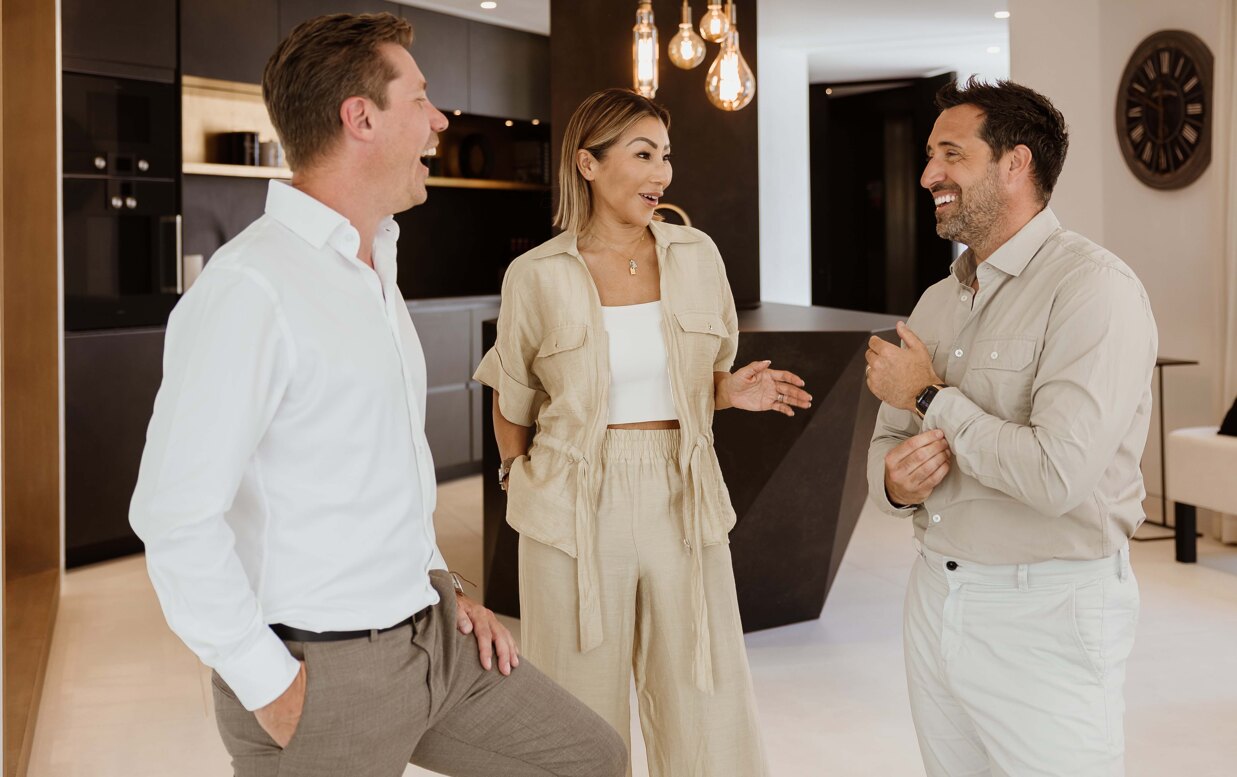
How the Offer Process Works When Buying a Property in Spain
· by Miah van de Bilt · 7 min. read
Whether you’re looking to buy your dream home or sell your property on the Costa del Sol, understanding how the offer process works in Spain is essential.
Clear, well-structured negotiations help buyers feel confident and give sellers peace of mind that they are dealing with serious, qualified clients.
With the support of an experienced real estate agent and a trusted lawyer, you can move from offer to ownership smoothly and securely. Most property owners are open to negotiation, but knowing how to approach it correctly is key. This guide will walk you through the offer process step by step, helping you navigate negotiations with confidence. With the support of a knowledgeable real estate agent and a trusted lawyer, you can successfully secure your dream home on the Costa del Sol.
- Table of contents
- The Structure of the Process
- Factors to Consider When Making an Offer
- Tips for Making an Offer:
- The First Offer
- The Subsequent Offers
- The First Formal Agreement
- Next negotiations
- A Reservation Agreement
- The PPC Contract
- The Deed of Sale
- Summary
The Structure of the Process
The offer process in Spain typically begins with informal, verbal negotiations and progresses to a formal written offer. A buyer’s agent or lawyer often presents this offer on your behalf. Once an offer is accepted, the process usually follows these three steps:
- Reservation Agreement (Reserva de Compra) – optional, secures the property with a 1% deposit.
- Private Purchase Contract (Contrato de Arras) – formal agreement with 10% deposit and full terms.
- Public Deed of Sale (Escritura Pública) – signed at the notary to complete the purchase and transfer ownership.
Once the offer is accepted and the reservation signed, the legal process of conveyancing begins.

Factors to Consider When Making an Offer
Navigating the process of making an offer requires preparation. An important part of negotiating a price is the background. A serious offer should reflect several factors. A buyer needs to understand the local market, both current and near future; state of the property. What you should consider:
- Is the asking price realistic?
The asking price for a property may not be realistic for the current market. Many vendors put a high price tag on their property based on their own perception of what it’s worth rather than the actual market value. However, most vendors come down on the initial price since this is part of selling a property in Spain process.
Not many buyers (especially from abroad) have good knowledge of market prices. This is where your real estate agent comes in. We are familiar with the area, the types of property, the prices and values. Furthermore, we have an idea of where the market is going. Therefore, we can offer expert advice on how much a buyer should pay for a property.
- What’s the Property’s Condition?
Take a good look at the property yourself and get an inspection report to get the full picture on its state. Based on this information, you will be able to understand if the asking price reflects the property’s condition. Your real estate agent will help with guidance.
- How is the Vendor’s Situation?
Personal circumstances make a difference in property sales, particularly when the vendor needs to sell quickly. In this case, the vendor is more likely to enter negotiations on the price and accept a lower offer. Your real estate agent will have insight into the vendor’s need to sell.
- What’s Your Own Budget?
Before you talk about money with the vendor, look at your finances, and work out the maximum price you are able to pay. If the property needs refurbishment, factor these costs into your budget.
Based on information about the market, vendor’s situation, property’s condition and your budget, the next step is to make an initial offer.
For sellers, understanding these same factors is equally important. Pricing your property realistically, presenting it in top condition, and working with an agent who can communicate its true market value will attract qualified buyers and reduce time on the market.
Tips for Making an Offer:
- Start Smart: Base your offer on market data, your budget, and your agent’s advice.
- Stay Flexible: Consider negotiating on conditions and timing—not just price.
- Be Professional: A well-reasoned offer shows seriousness and respect.
- Understand the Seller’s Motivation: This can influence how low they're willing to go.
- Have Patience: Offers may be accepted, countered, or declined—negotiation takes time.
- Work with a Trusted Agent: An experienced agent can guide you through cultural nuances and local practices.
For sellers: Be open to reasonable offers and rely on your agent’s guidance to evaluate a buyer’s seriousness.

The First Offer
Negotiations usually begin verbally and are conveyed by your estate agent. It’s crucial to strike a balance—too high, and you overpay; too low, and you risk offending the seller. In Spain, this is especially important, as personal relationships and respectful dialogue matter.
The Subsequent Offers
Depending on whether the vendor accepts or rejects your first offer, you may have to negotiate further on price. The vendor may counter with a higher price but including furniture or refuse to budge until you agree to pay more. Later, you will also need to agree on other aspects of the purchase, including timescale, furniture, legal issues, etc.
The First Formal Agreement
Once the verbal negotiations are successful, and both parties have agreed on a price, set this down in writing. Make sure the document ("purchase offer" or "offer to buy") clearly states the price, but does not include anything that means you are legally bound to the purchase.Â
The offer is typically valid for a certain short period, allowing the seller to accept, reject, or make a counteroffer.
Next negotiations
The next step for both parties will be to agree on the following:
- Timescale
The purchase contract sets a deadline for the purchase usually 2 months after the contract is signed. This deadline is legally binding, so make sure you negotiate a date that gives you enough time for organising your finances (bank transfers, mortgage applications, etc.), and your logistics if you plan to sign the title deeds in person, not through power of attorney.
- What the purchase includes
You need to come to an agreement with the vendor about fittings, fixtures, etc. If they are included in the sale, they should be listed in a separate inventory and mentioned in the contract.
- Negotiations about legal issues
This negotiation should be carried out by your lawyer so that your interests and investment are protected. Due diligence carried out by a lawyer can uncover some legal issues affecting the property, including illegal extension works, wrong description on the title deeds, unpaid taxes, etc. They take time and money to be resolved. Generally, the issues are resolved by the vendor but can be compensating in the price in return for the buyer paying to solve the legal issue.
A Reservation Agreement
Signing a reservation agreement (Reserva de Compra) is optional but recommended.
It can be a smart move in Marbella’s competitive market. This agreement reserves the property for some period (while you conduct further checks) in exchange for a deposit of 1%. This allows securing a property and clarifying details before signing a formal contract.
The PPC Contract
Once the seller accepts your offer, you’ll sign Contrato de Arras, a more formal pre-sale agreement that usually requires a 10% deposit. The contract outlines all the terms of the sale, including the total purchase price and payment timeline. Now, if you back out of the deal, you forfeit your deposit. The seller would have to return double the deposit amount if they withdraw.
The Deed of Sale
The final step is signing the public deed at the notary. This document formalizes the transfer of ownership. At this stage, you make the final payment, and the property is legally yours.e final payment.
Summary
Buying or selling a home in Spain can be complex, especially for international clients - but it doesn’t have to be.
´ˇłŮĚý91µĽş˝, we guide both buyers and sellers through every stage of the process, from price negotiations and legal checks to successful closing.
Our goal is to make your transaction smooth, secure, and beneficial for all parties involved.
Let us make your journey to Spanish property ownership smooth, secure, and successful.
